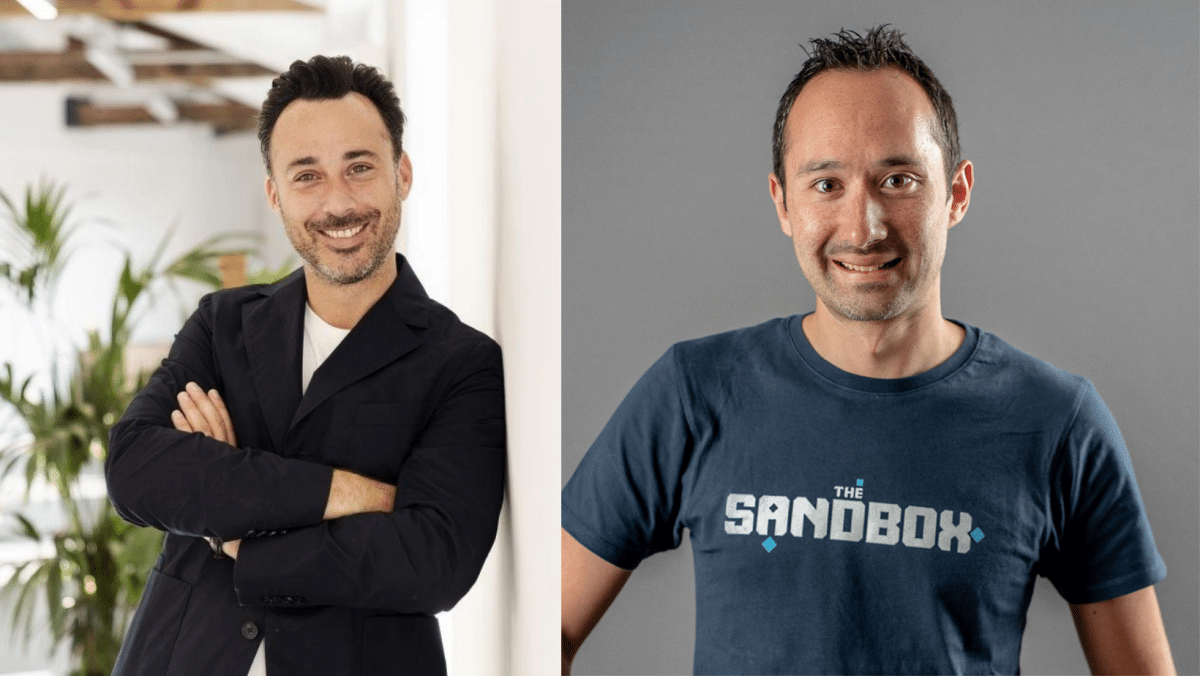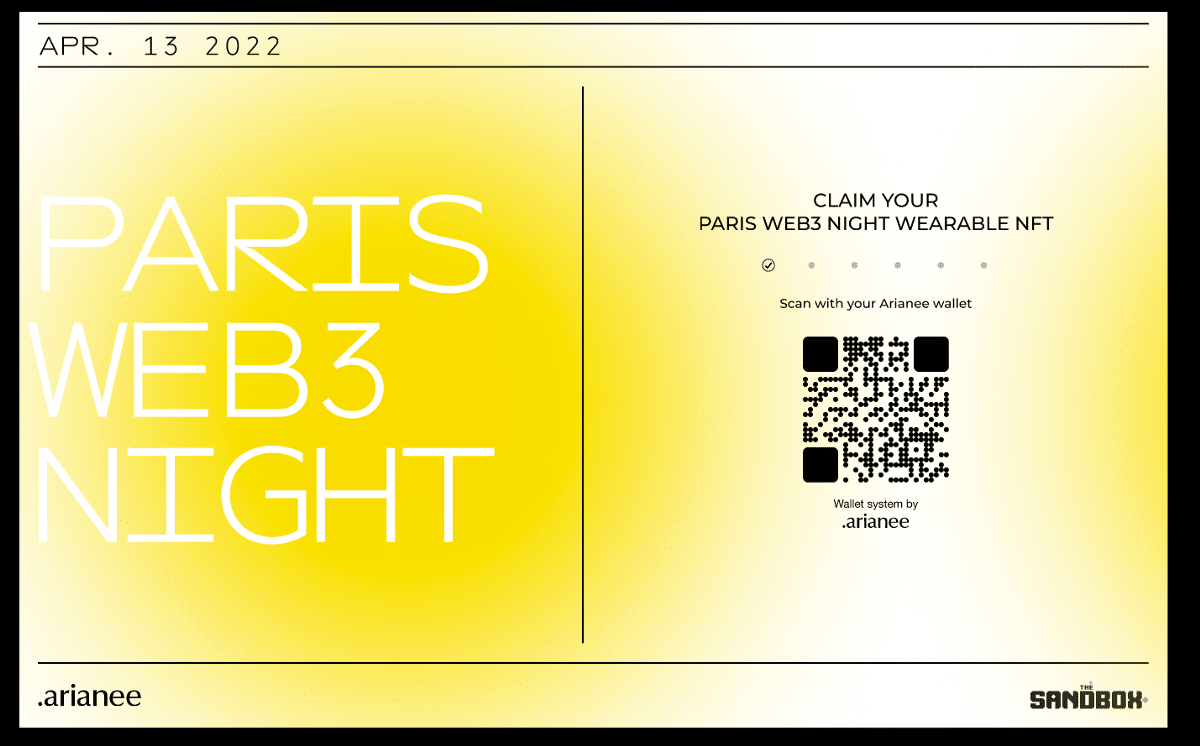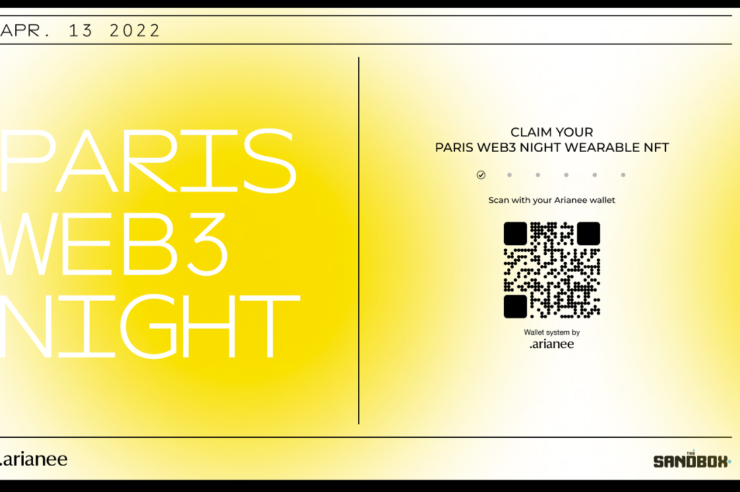In a world where counterfeiting and plagiarizing physical luxury goods are common, luxury brand customers are increasingly preoccupied with ensuring their goods are 100 per cent authentic. Until a couple of years ago, this was nearly impossible. All this changed with the advent of blockchain technology. One company – Arianee – realised there was this gap in the market.

The French company created an ingenious solution that is quickly making counterfeiting a relic of another era. And with their recently-announced collaboration with The Sandbox, Arianee is quickly expanding its influence both in the metaverse and offline.
NFTevening sat down with Arianee’s Chief Executive Officer Pierre-Nicolas Hurstel and The Sandbox’s Sebastien Borget for a tête-à-tête about how blockchain technology is revolutionizing the luxury goods sector and the partnership between the two companies.
This interview was conducted by NFTevening’s Janelle Borg. Quotes are condensed and edited for clarity.
Founding Arianee
Arianee came about after a group of seasoned entrepreneurs from different backgrounds came together to build a business at the intersection of fashion and technology. “We all get together to build this business at the time when NFTs were not something you could talk about, even if we’ve been using the ERC 721 standard from day one,” said Hurstel.
But how exactly did they realize that there was a market gap that desperately needed blockchain technology? According to Hurstel, it was “the anticipation of a new relational architecture in the digital world based on wallets and tokens based on scarcity and ownership.” It was the vision that in this new Internet, relationships between communities and brands, designers and creators are based on ownership of digital assets.
Hurstel and the Arianee team believe in a socio-economic system made of tokens and wallets and a relational infrastructure built on top of that pool. This ambitious vision is embedded in the name, which relates to the Cretan mythological princess of mazes and labyrinths.
Fashion houses and the metaverse
Arianee focuses primarily on fashion. Last year, the company helped Paris Fashion Week become the first fashion week in the world to implement NFTs. Additionally, the company has also worked with Breitling, Vacheron Constantin, and Richemont, to name but a few.
According to Hurstel, “The metaverse is another thing on top of an extremely complex distribution schema, and also the marketing infrastructure. Fashion houses are excited, as they see the opportunity to engage with their communities in a different way to offer more exciting, immersive experiences.”
However, even Hurstel admits that fashion houses are having a hard time figuring out what true ownership in the digital world means. He states, “They are used to design, create, manufacture beautiful goods, with the craftsmanship and a sense of scarcity. And they know that and they manage that very well.”
The most forward-looking fashion houses see potential to replicate this in the digital world. At the same time, they want to ensure that they have a certain level of control over the digital product, as they do over the physical. “So for them, it’s really trying to understand where they can hand out to their community, and what they need and must continue to control,” he explains.
Decentralization in the physical world vs the metaverse
According to Hurstel, what makes the fashion industry more receptive to the blockchain concept of decentralization is the fact that fashion is already decentralized. “They use suppliers, they sometimes use independent retailers. They’ve seen that with the emergence of the Internet and with online retailers, marketplaces and social media. So in a way that their world is already decentralized,” Hurstel says.
So what makes decentralization in the metaverse different? “What’s hard for them to understand is: what does that mean when I produce a digital good? What is this? What’s going to be the life of the thing? What is going to happen to it?” he says. “And so it’s not that they have a hard time. It’s just that it’s a learning curve that is normal for the next thing. They are upskilling themselves.”

Arianee x The Sandbox
For Arianee, partnering with The Sandbox to expand its metaverse ambitions was a no-brainer. This is because, according to The Sandbox’s Sebastien Borget, fashion is an integral part of the future of the community-driven metaverse.
Thanks to this partnership, owners of luxury goods NFTs can get a corresponding product for their avatar in The Sandbox. Therefore, brands can mix the physical and digital, creating an immersive experience that takes their products to new heights. In addition to opening up The Sandbox to a whole new audience, this collaboration will enable users to express their identity and rep their favourite brand through their avatar.
Borget explains why this collaboration felt natural for the two fast-growing companies: “Fashion and lifestyle luxury are definitely three major themes that we want users to access. We already have 200 brands on The Sandbox, and we’ve been talking to 1000s of them.”
However, The Sandbox still wants to reward people for buying physical goods. So how can the IRL link up to the metaverse?
Arianee proved to be the answer
“It’s all about extending the experience,” insists Hurstel. “And what we care about is not replacing, it’s complementing. It’s giving utility, it’s making people get more fun, more experience, more value from what they get.”
“For many of the brands we work with, their client base is not crypto. They don’t necessarily have a crypto wallet, they’re not necessarily comfortable with this new world yet. It’s growing fast. But the entire majority of the customer base needs a simple way in, and that’s what brands are offering them.”
Thanks to this collaboration, brands are now offering a way for customers to gain an understanding of the metaverse; and how the physical and digital can interact in a complementary way. Collaborations such as these continue to debunk the myth that the metaverse will wipe out physical brands. On the contrary, such partnerships continue to show how brands will use the metaverse to enhance the customer journey in the years to come.
Are you tired of missing important NFT drops?
Just check out our NFT Calendar!
Receive the biggest NFT news of the day & recommendations in our Daily newsletter.
All investment/financial opinions expressed by NFTevening.com are not recommendations.
This article is educational material.
As always, make your own research prior to making any kind of investment.






















Comments (No)